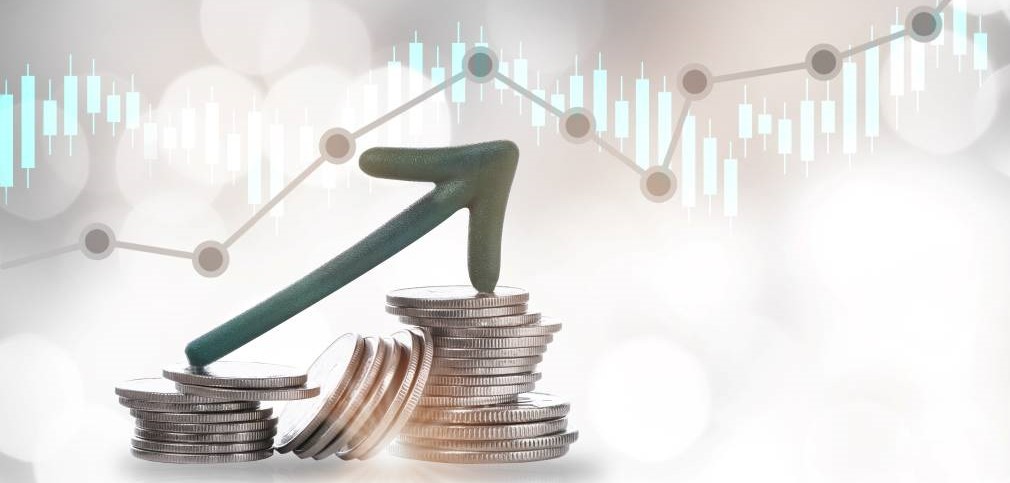Interest rates, often controlled by central banks like the Federal Reserve in the U.S., are one of the most important economic variables influencing investment strategies. Rate changes can affect everything from borrowing costs to market liquidity, ultimately shaping investor behavior across asset classes. Understanding how interest rates work—and how they influence different types of investments—can help investors make smarter, more informed decisions in changing economic environments.
How Interest Rates Impact Investment Decisions
1. The Basics of Interest Rates
Interest rates represent the cost of borrowing money and are a tool used by central banks to manage economic growth and inflation. When central banks raise or lower rates, they can influence the economy by making borrowing more expensive or cheaper, thereby affecting consumer spending and investment levels.
2. The Direct Effect of Interest Rate Changes on Asset Classes
A. Stocks and Equities
- Low Interest Rates (Accommodative Policy):
- Lower rates make borrowing cheaper for companies, leading to increased business investments, expansion, and higher stock prices.
- Lower rates also make bonds less attractive, prompting investors to shift money into stocks, which may increase stock market valuations.
- Growth stocks, especially in sectors like technology, tend to benefit the most from low interest rates.
- High Interest Rates (Tightening Policy):
- Rising rates increase borrowing costs, potentially slowing down business expansion and reducing corporate profits.
- As bonds become more attractive relative to stocks, investors may shift capital out of equities into fixed-income securities, causing stock prices to decline.
B. Bonds and Fixed Income
- Low Interest Rates:
- Existing bonds with higher interest rates become more valuable as new bonds are issued at lower rates.
- Investors seeking stable returns may prefer bonds, especially long-term bonds, during periods of low interest rates.
- High Interest Rates:
- New bonds with higher yields become more attractive, reducing the price of existing bonds with lower yields.
- Rising rates hurt the bond market, especially for long-duration bonds, as the present value of future coupon payments decreases.
- Investors may prefer short-term bonds to reduce the negative impact of rate hikes.
C. Real Estate
- Low Interest Rates:
- Low rates make mortgages cheaper, encouraging home buying and stimulating the real estate market.
- Lower borrowing costs also incentivize property developers to invest in new projects, driving growth in the housing market.
- High Interest Rates:
- Higher rates lead to higher mortgage payments, which can dampen demand for real estate.
- This can slow down housing price appreciation and lead to reduced demand for real estate investments.
- Commercial real estate may also suffer as businesses cut back on expansion plans due to higher borrowing costs.
D. Commodities
- Low Interest Rates:
- Low rates often lead to inflation, which boosts the demand for commodities like gold, oil, and other tangible assets as a hedge against currency devaluation.
- Commodity prices tend to rise when borrowing is cheap and liquidity is abundant in the market.
- High Interest Rates:
- High rates can strengthen the currency, which may reduce demand for commodities priced in that currency.
- Rising interest rates may make commodity investments less appealing, as they don’t offer yield or dividends like stocks or bonds.
3. Interest Rate Changes and Investment Strategy Adjustments
A. Portfolio Diversification
- Asset Allocation Shifts:
- As interest rates change, the optimal allocation of investments between stocks, bonds, and alternative assets shifts.
- A diversified portfolio can help smooth out the impact of interest rate fluctuations by reducing exposure to sectors most affected by rate changes.
B. Sector Rotation
- Low Interest Rate Environments:
- Sectors that benefit from cheap capital, such as technology, real estate, and consumer discretionary, tend to outperform during periods of low rates.
- Investors may adjust their portfolios to favor these sectors when rates are expected to remain low.
- High Interest Rate Environments:
- Sectors that are less sensitive to rate changes, such as utilities and consumer staples, tend to perform better during periods of rising interest rates.
- Investors may rotate into these more defensive sectors to shield their portfolios from volatility.
C. Fixed Income Strategies
- Bond Laddering:
- This strategy involves purchasing bonds with different maturity dates to reduce the risk of rising interest rates affecting the entire bond portfolio.
- Laddering helps balance the tradeoff between higher yields from longer-term bonds and the risk posed by interest rate changes.
- Floating Rate Bonds:
- These bonds have interest rates that adjust periodically, making them more attractive when rates are rising. Investors can consider these bonds in an environment where rates are expected to rise.
4. Hedging Against Interest Rate Risk
- Interest Rate Derivatives:
- Futures contracts and options on interest rate products like Treasury bonds allow investors to hedge against interest rate movements.
- These financial instruments help manage the risk associated with rising or falling interest rates.
- Inverse ETFs:
- Some exchange-traded funds (ETFs) are designed to perform well when interest rates rise by shorting bonds or fixed-income securities. Investors can use these ETFs to hedge against a rising rate environment
The Federal Reserve's decision to tighten the money supply is a crucial development for investors. This article explores the implications of such monetary policy adjustments on financial markets and investment strategies.
As wages rise across the U.S., both consumers and businesses are feeling the effects in various ways. Higher wages lead to increased disposable income, driving consumer spending and affecting the flow of money in the economy. This article explores the impact of rising wages on purchasing power, inflation, business growth, and the overall economic landscape
Federal Reserve Chair Jerome Powell has introduced a series of new policies designed to stabilize U.S. money markets amid economic uncertainties. These changes could have significant implications for both short-term and long-term investors, as well as for the broader financial landscape. This article dives into the details of these policies and their potential impact on market dynamics and investment strategies
Banking system reforms are reshaping the financial landscape, and these changes could impact your savings and investment accounts. From interest rates to new regulations, understand how these reforms will affect your financial future. This article provides insights into the potential implications and how you can adapt your strategy to thrive in the evolving financial environment









